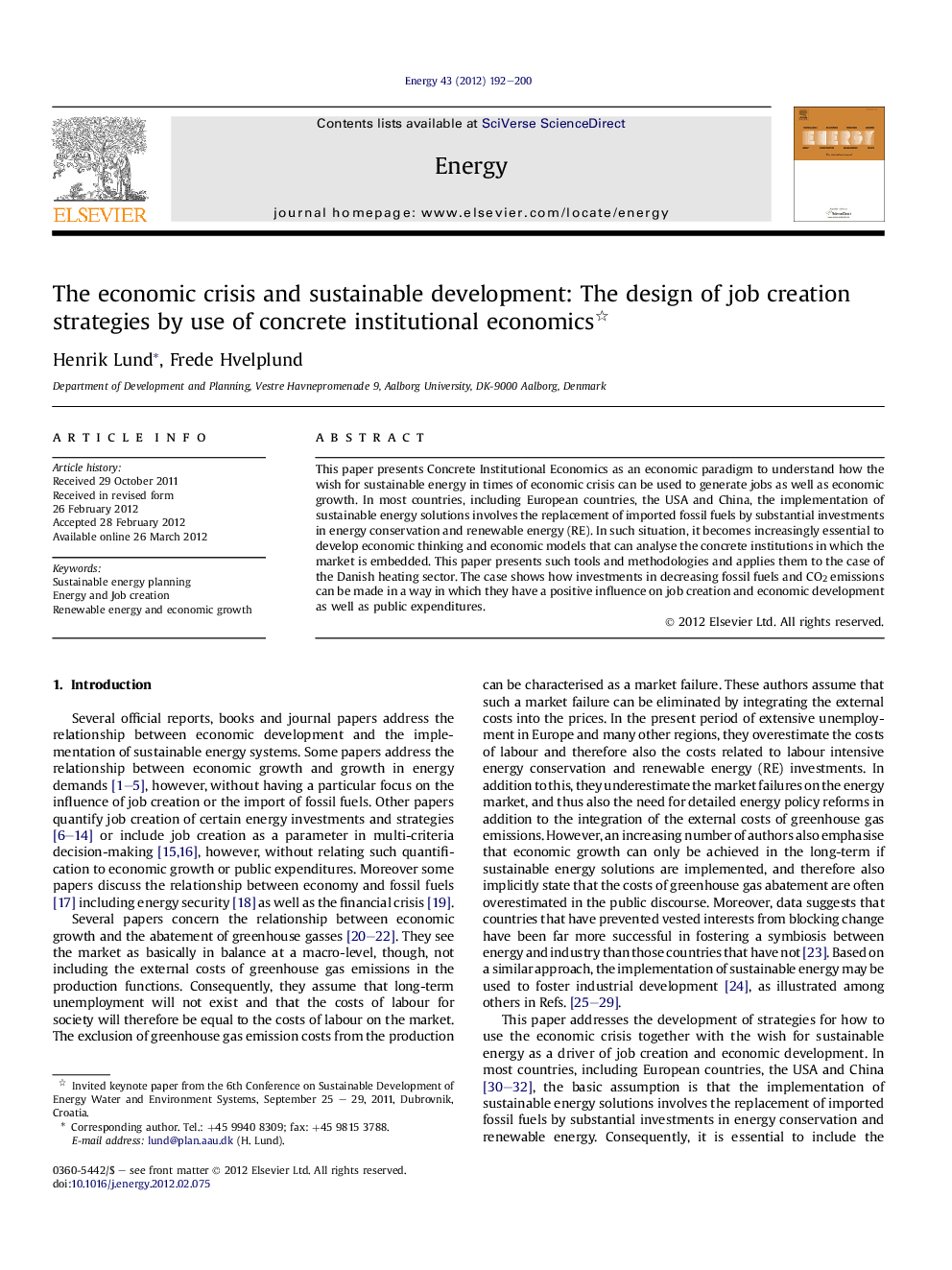| Article ID | Journal | Published Year | Pages | File Type |
|---|---|---|---|---|
| 1733760 | Energy | 2012 | 9 Pages |
This paper presents Concrete Institutional Economics as an economic paradigm to understand how the wish for sustainable energy in times of economic crisis can be used to generate jobs as well as economic growth. In most countries, including European countries, the USA and China, the implementation of sustainable energy solutions involves the replacement of imported fossil fuels by substantial investments in energy conservation and renewable energy (RE). In such situation, it becomes increasingly essential to develop economic thinking and economic models that can analyse the concrete institutions in which the market is embedded. This paper presents such tools and methodologies and applies them to the case of the Danish heating sector. The case shows how investments in decreasing fossil fuels and CO2 emissions can be made in a way in which they have a positive influence on job creation and economic development as well as public expenditures.
► Presents Concrete Institutional Economics as an economic paradigm. ► Presents tools and methodologies to perform Concrete Institutional Economics. ► Applies the methodology to the case of the Danish heating sector. ► Presents a case that shows a positive influence on jobs as well as public expenditures.
